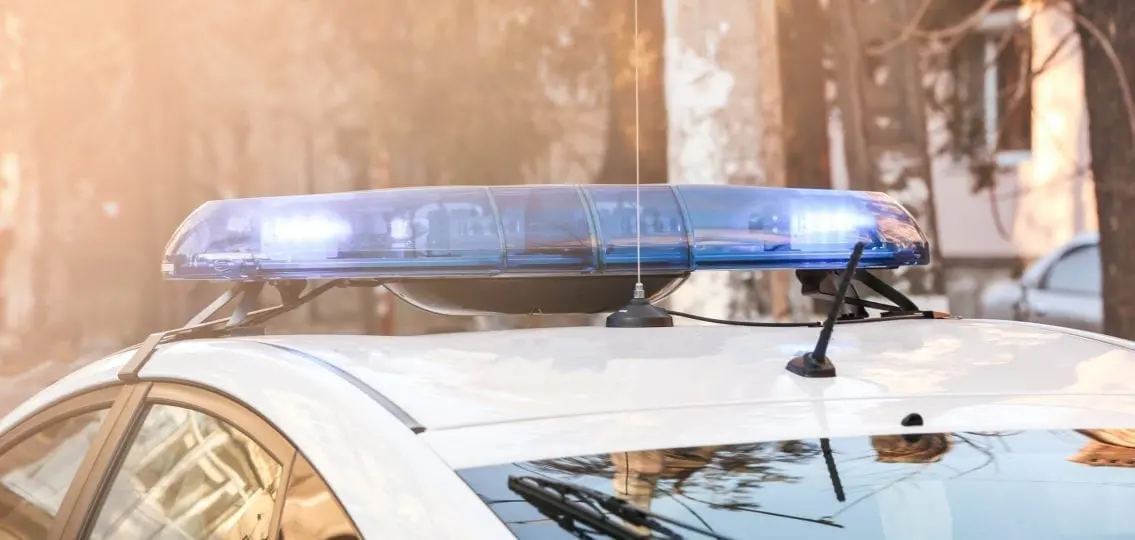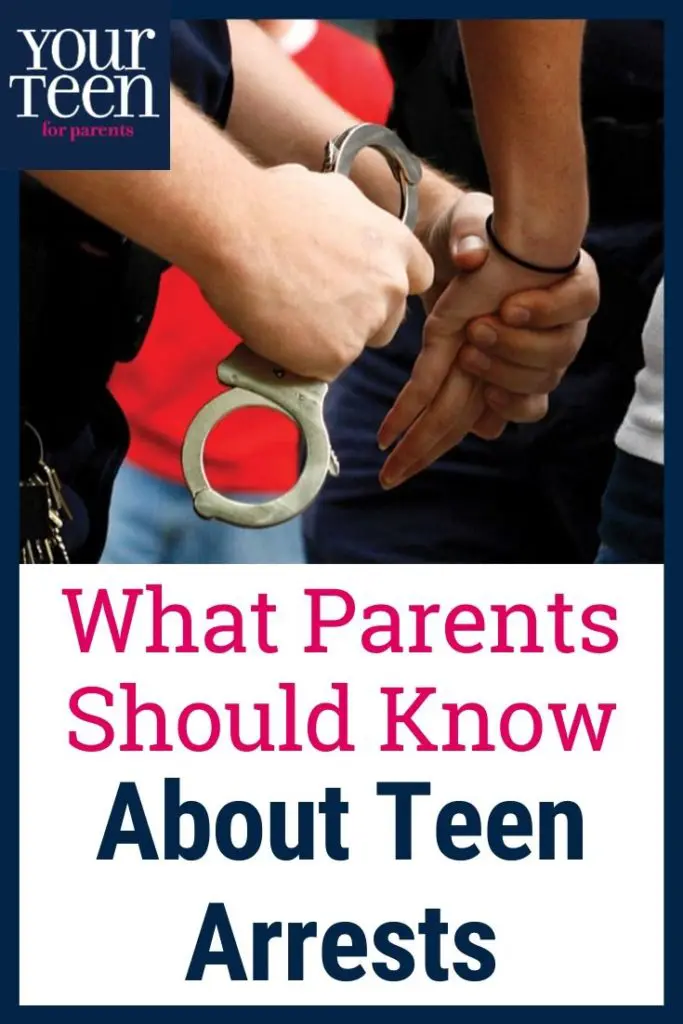When he was 17, Laura Euler’s son was arrested for driving his father’s car without the lights on. She found out when she happened to see him walking home by the side of the road, crying and without his glasses.

“I thought he couldn’t have been arrested because he was only 17,” says Euler. “I thought someone would have to tell us. They don’t have to tell you anything. You figure it out when your kid doesn’t show up.”
In 2018, an estimated 728,000 teens under 18 were arrested, according to the Department of Justice. The transgressions range from loitering and vagrancy to assault and murder—and everything in between.
What to Do if Your Teen is Arrested
Here’s what to do if your teen is arrested, whether for unpaid tickets or a more serious offense.
Prepare your kids
We talk to our kids about how to handle situations involving sex and drugs. We also need to talk to them about how to respond to police so they’re empowered to make the right decisions.
“Parents can absolutely tell their kids, ‘If anything ever happens and law enforcement is involved, you are not to say a word unless I’m there,’” says Channing Neary, a criminal defense attorney in Austin, Texas, who specializes in juveniles. She added that kids should insist that police call their parents and let them speak to them.
Get a lawyer
“The biggest mistake parents make is not getting a lawyer involved in the beginning,” says Neary. “If parents pick up on something that could be going on, they should listen to their gut. Get somebody involved from the get-go, before their kid is detained.” If a parent gets a call from another parent about a situation that could lead to an arrest, they should seek counsel, even if it’s from a family lawyer or a friend who’s a lawyer.
“If your child is the subject of an investigation or has just been arrested, the teen should say these four words: ‘I want a lawyer,’” explains Sandra Simkins, director and co-founder of the Children’s Justice Clinic at Rutgers School of Law and the author of When Kids Get Arrested: What Every Adult Should Know.
“The reason it is so important to say these four words is that it will stop police from interrogating the youth. And, in my 25 years of experience, teenagers who talk to the police always make it worse for themselves,” Simkins says. “Sometimes police will trick youth and say, ‘Your friend already told me you did it,’ or ‘We already have evidence,’ or ‘If you tell me, it will be better.’”
Simkins added that it’s always better not to give a statement because teens may unknowingly incriminate themselves. Statements frequently give prosecutors more evidence against the teen.
When race comes into play
Many parents of color have what’s become known as “the talk” to prepare them for police interactions. This may include knowing what to say to police and also how to stay calm and compliant. Black people are far more likely to be killed by police than white people. And there have been a number of high profile cases of black people being stopped by police and ending up dead.
Youth of color are disproportionately represented at every stage of the juvenile justice system. They are most likely to be arrested, sent to detention, confined in juvenile placements, and transferred to adult court.
What, then, should parents emphasize with their teens of color? Neary advises parents to tell teens not only not to talk, but to be compliant. “If the police ask you to get out of the car, if they ask you to turn around, if they ask you to get your hands out of your pockets, if they want to put handcuffs on you—do exactly what you’re told. It really can be a life or death situation,” she says. “Even if you’ve done nothing wrong, be compliant and deal with it later.”

If a police encounter seems to be going awry, Simkins says teens should document it all as best they can. “If your teen suspects their rights are being violated during an arrest, ask for a lawyer. And take note of everything. Note who is making the arrest, badge number, name, date, time, location, who else was present, names and numbers of any witnesses, etc.,” says Simkins. Later, you can discuss this with your lawyer. Then you can decide if any follow-up, such as the filing of a complaint, is appropriate.





